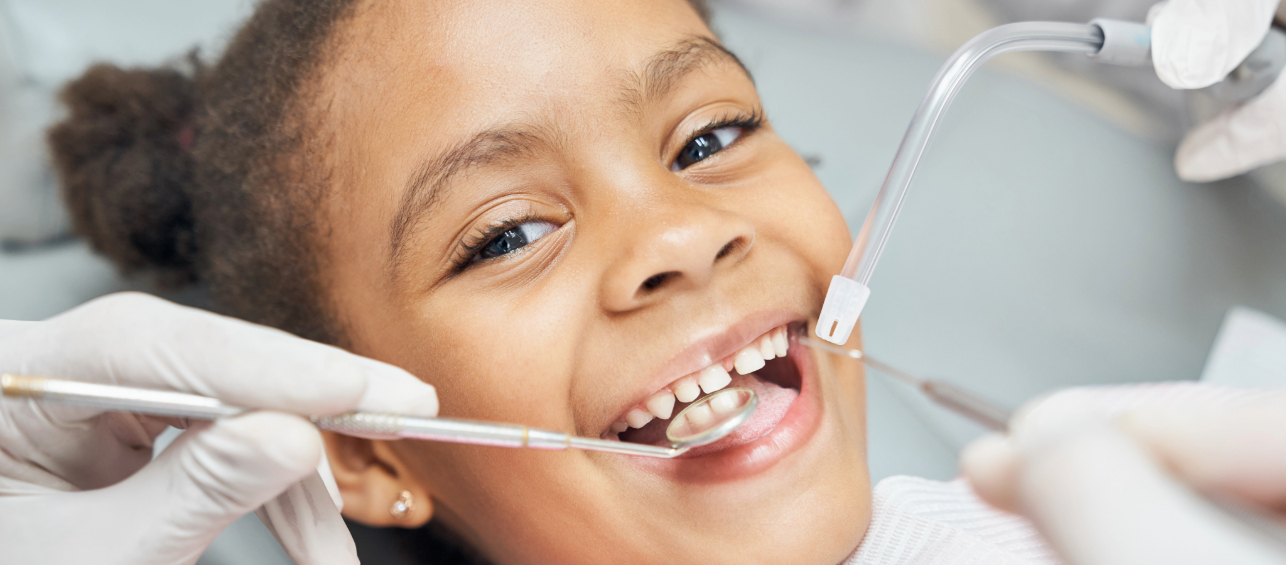If you’re a parent of a teen today, you likely remember when you or someone you know had their wisdom teeth removed in high school or college. Now that you have your own teen in the house, when should you start thinking about possible wisdom tooth removal? Read on to learn all about wisdom teeth and what you need to know if your child needs to have theirs removed.
Why Do Wisdom Teeth Need to be Removed?
Also known as third molars, wisdom teeth are four permanent teeth at the back of both the top and bottom of the mouth. Wisdom teeth can present as “impacted,” which means there isn’t enough room in the mouth for them to come in. When this happens, they can sit at angles causing pain and in some cases infections. They are removed to prevent further problems in the future.
As many as 54% of people will have at least one impacted molar. Some people will only have one wisdom tooth removed, while others may need to have all four removed.
It is important to note that not everyone needs to have their wisdom teeth removed (also called “extraction”). Common reasons for removal include if:
- The wisdom teeth are impacted
- The wisdom teeth have come partially in and food is caught around the gums
- A cavity develops, because wisdom teeth can be hard to clean
Left untreated, partially erupted or impacted wisdom teeth can lead to severe cavities, facial infections, hospitalization, pain, and missed hours of school and work.
What Ages Are Most Common for Wisdom Tooth Removal?
Most often wisdom teeth are removed between the ages of 16-20. The procedure is typically done by an oral and maxillofacial surgeon. Start asking your child’s dentist about the potential need for wisdom tooth removal when your child is around 15-16 years old.
Many oral and maxillofacial surgeons will work with you to minimize time missed from school, or will help you schedule wisdom tooth extraction during a school vacation.
Tips for a Health Recovery
In general it takes about 2-3 days to recover with over-the-counter (OTC) pain medications. The course of recovery typically relates to how impacted the teeth are.
Some teens have a relatively quick recovery, and others take a bit longer. Plan on having your child take it easy those first few days.
Your child will come home from their surgery with detailed instructions to follow during their recovery period. Tips for a healthy recovery include:
- Keep the mouth clean
- Eat soft foods — applesauce, yogurt, soup, scrambled eggs and oatmeal are all good options
- Sip on drinks but do not use a straw for two full weeks after surgery
- Follow the surgeon’s other instructions related to pain medication, rest, and use of gauze and ice
What Risks Are Related to Wisdom Tooth Removal?
Removal of wisdom teeth typically does not cause long-term problems. Complications are rare, but can include:
- Temporary numbness in the area depending on how close the nerve that covers the lower jaw is
- Sinus exposure/infection
- Damage to adjacent teeth or fillings
- Dry socket — your surgeon will provide you with details about this condition and how to help prevent it
Your surgeon will review preparation instructions and anesthesia options for your teen. Talk to your child about questions they have about the procedure. Write them down and ask them at the initial appointment. If your child is nervous, be supportive and reassuring. Each year around five million people in the U.S. have their wisdom teeth removed — it’s very common and they will quickly be back to eating their favorite foods when they follow the surgeon’s guidelines for a healthy recovery.






